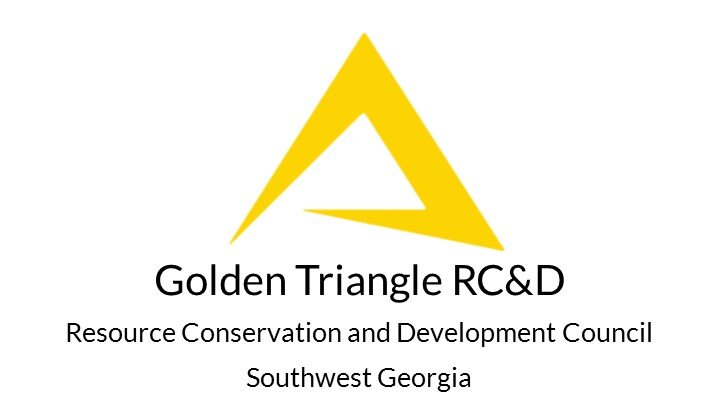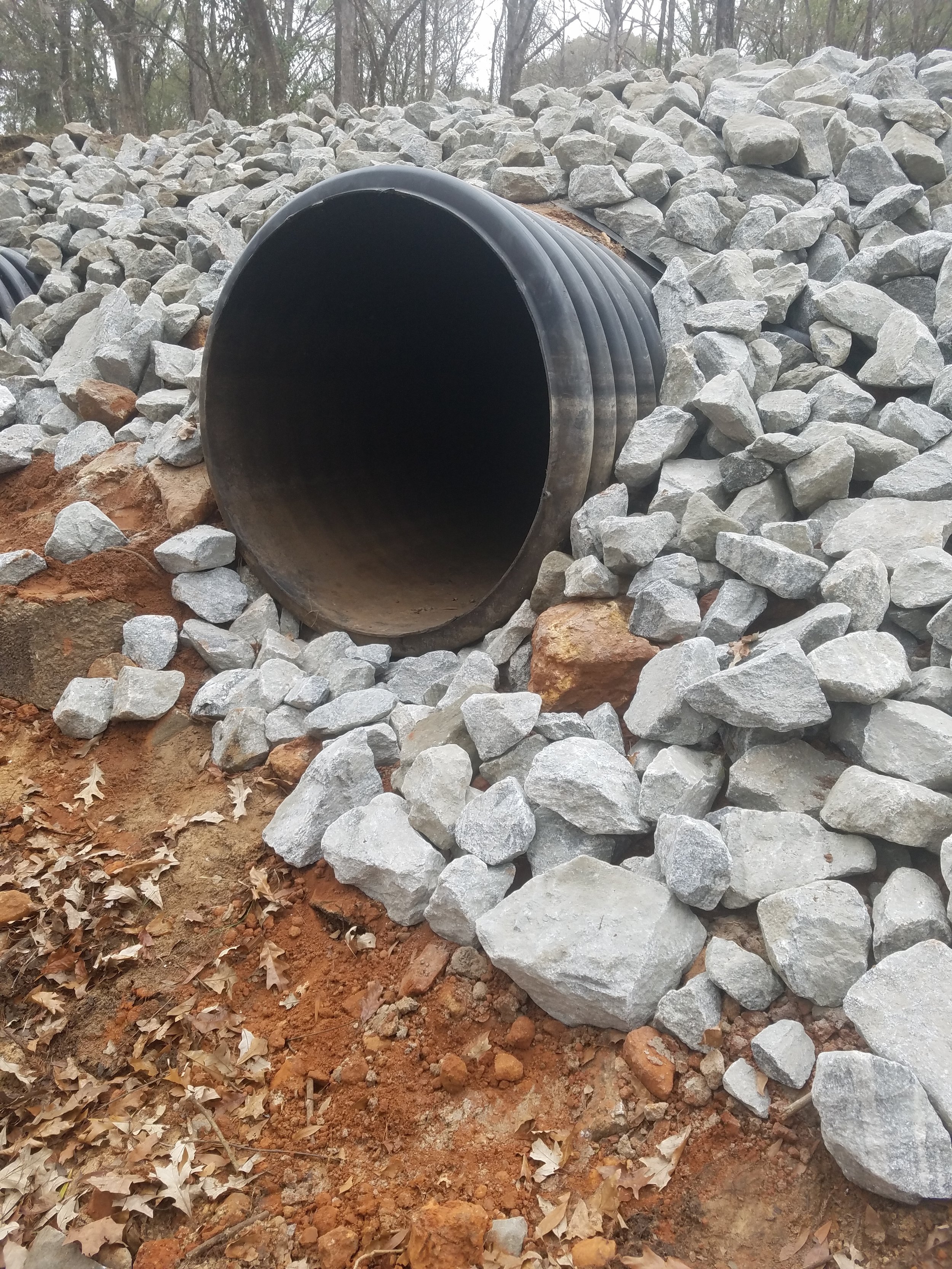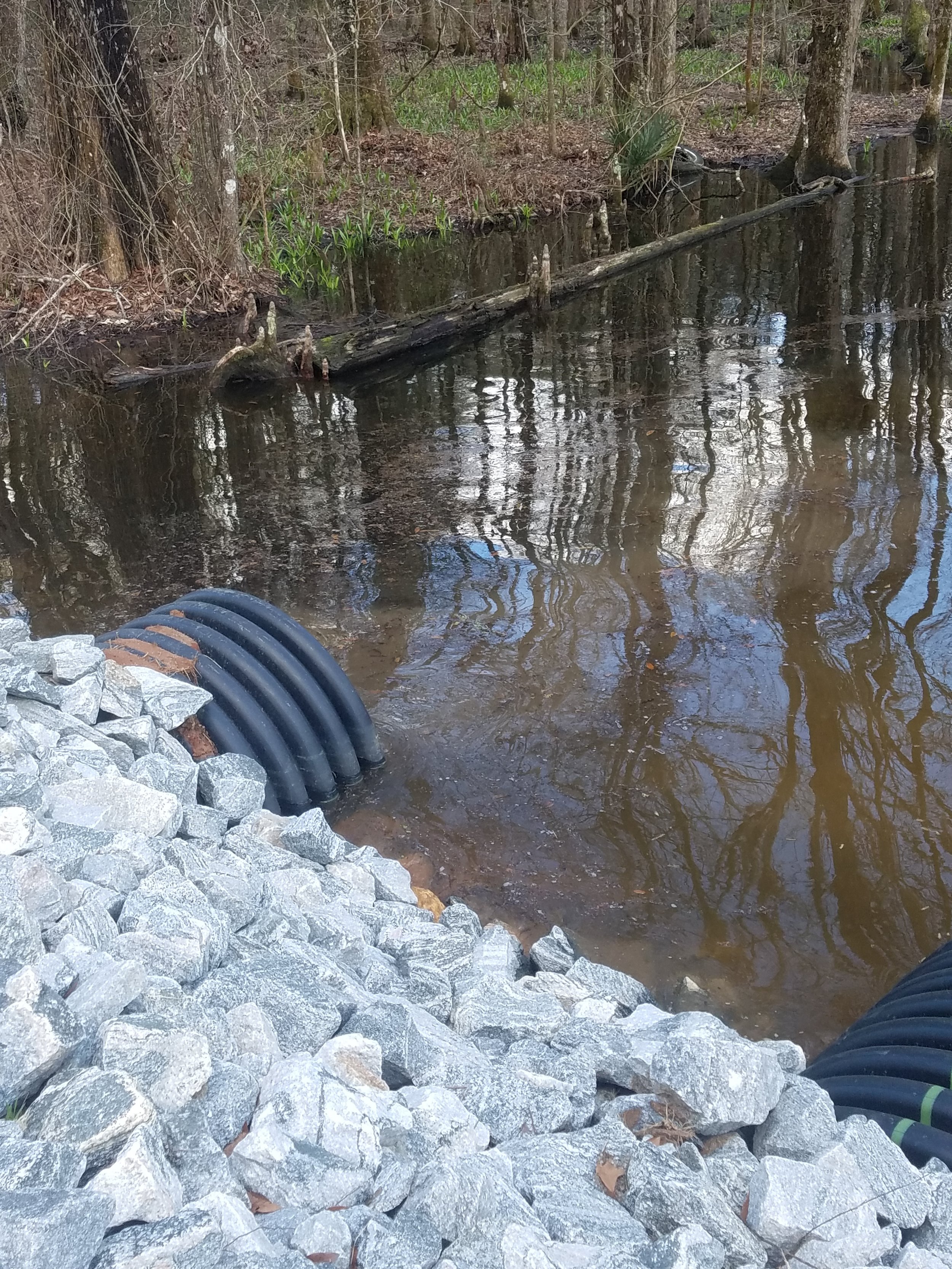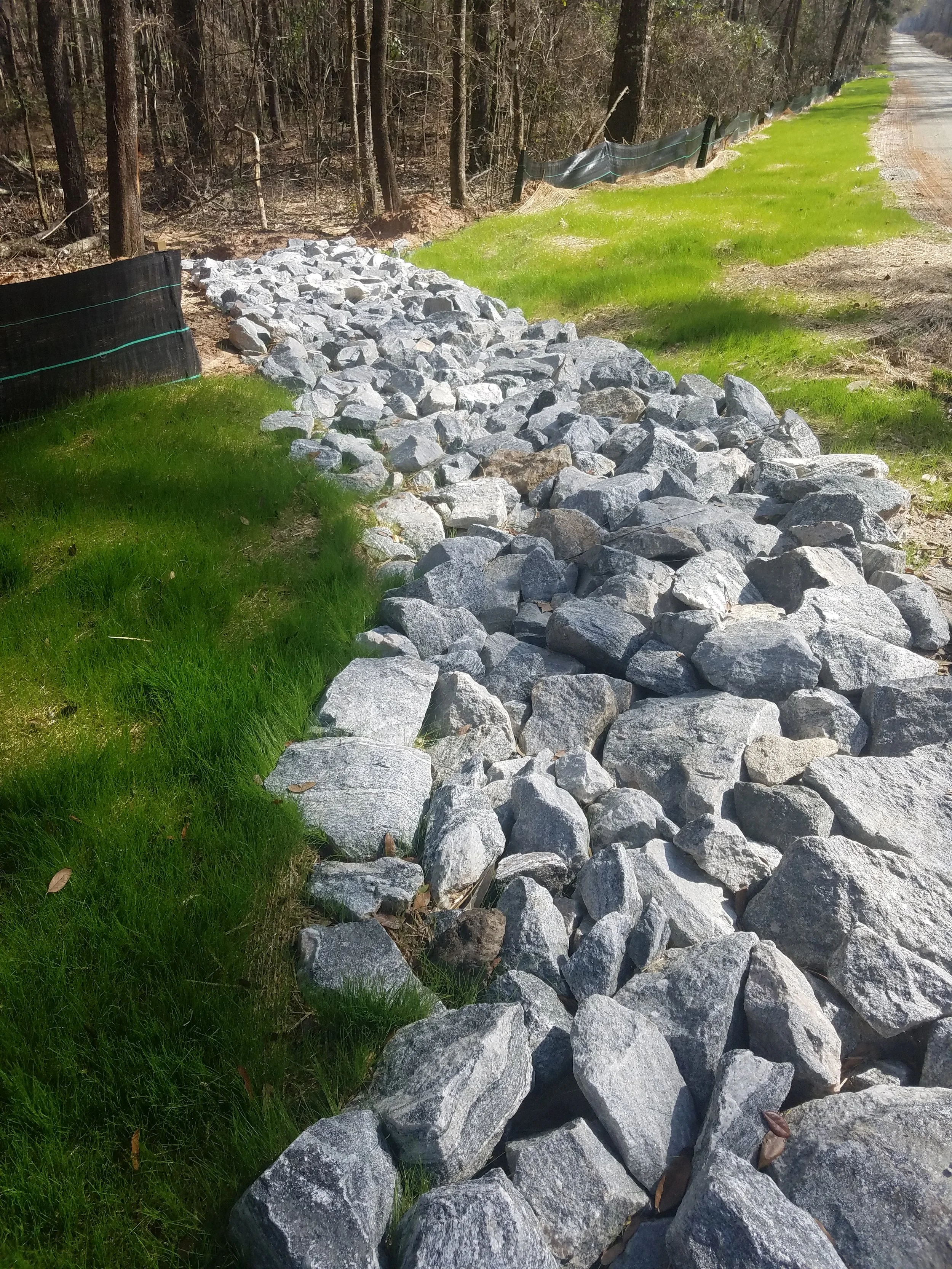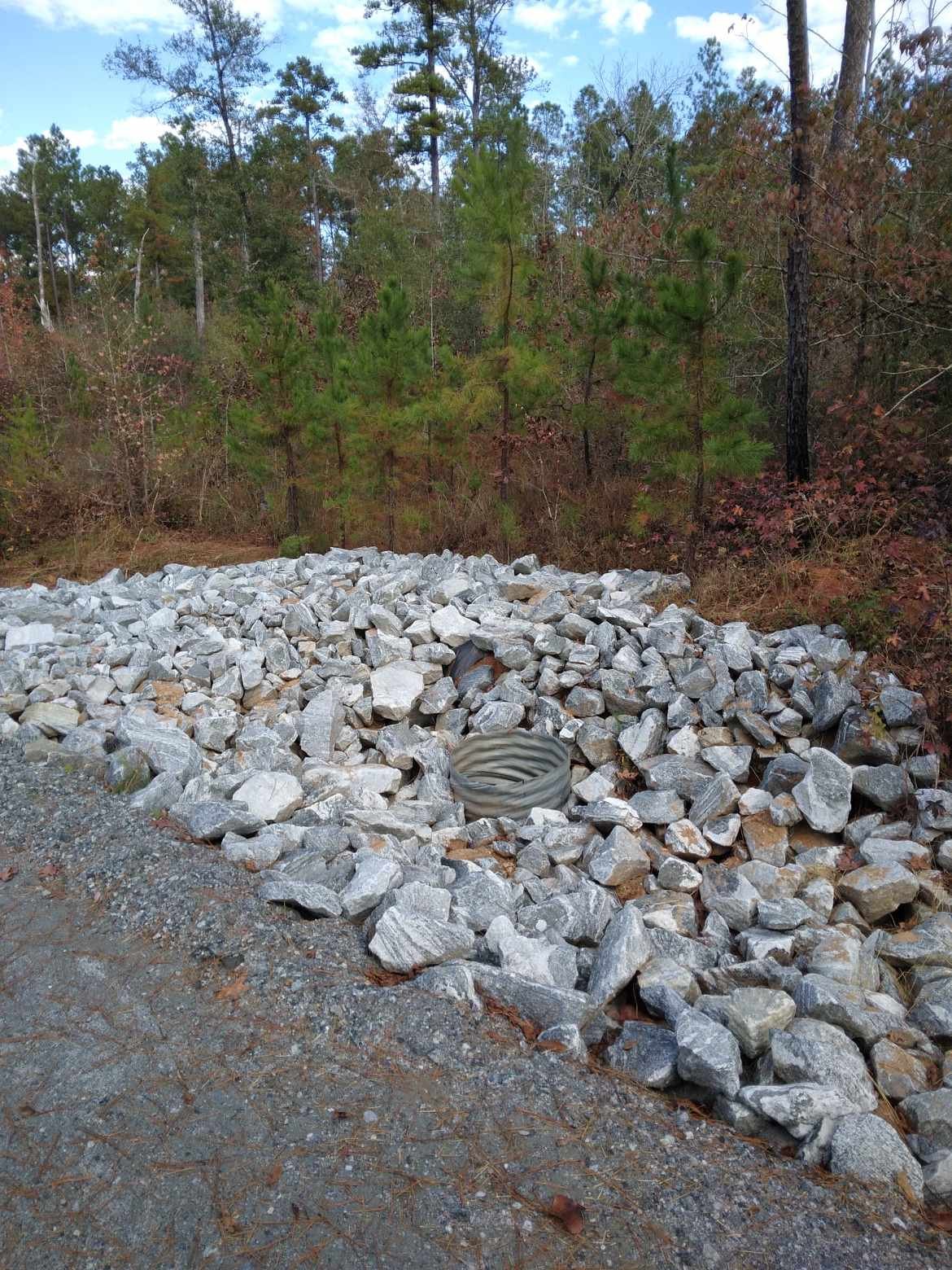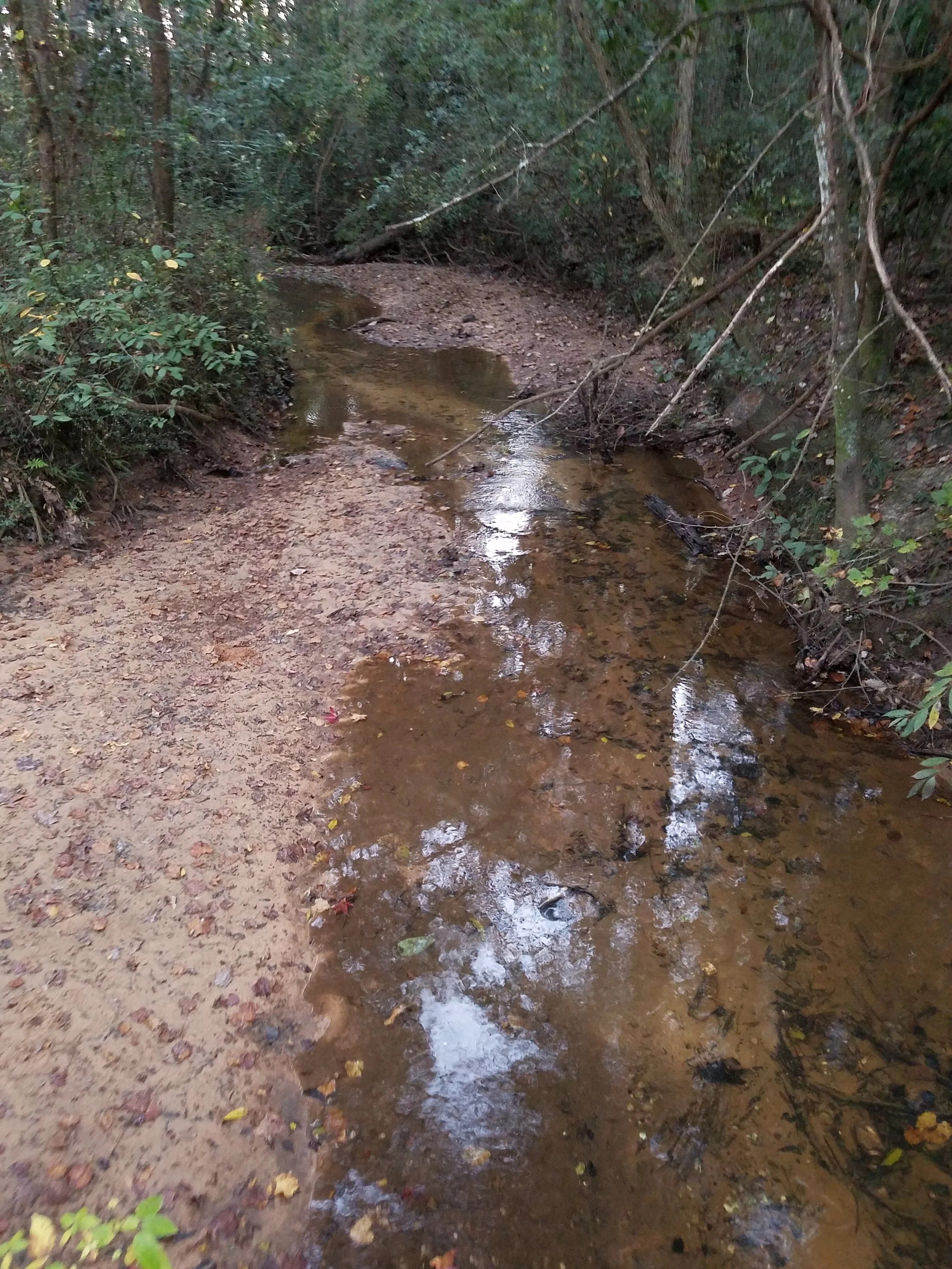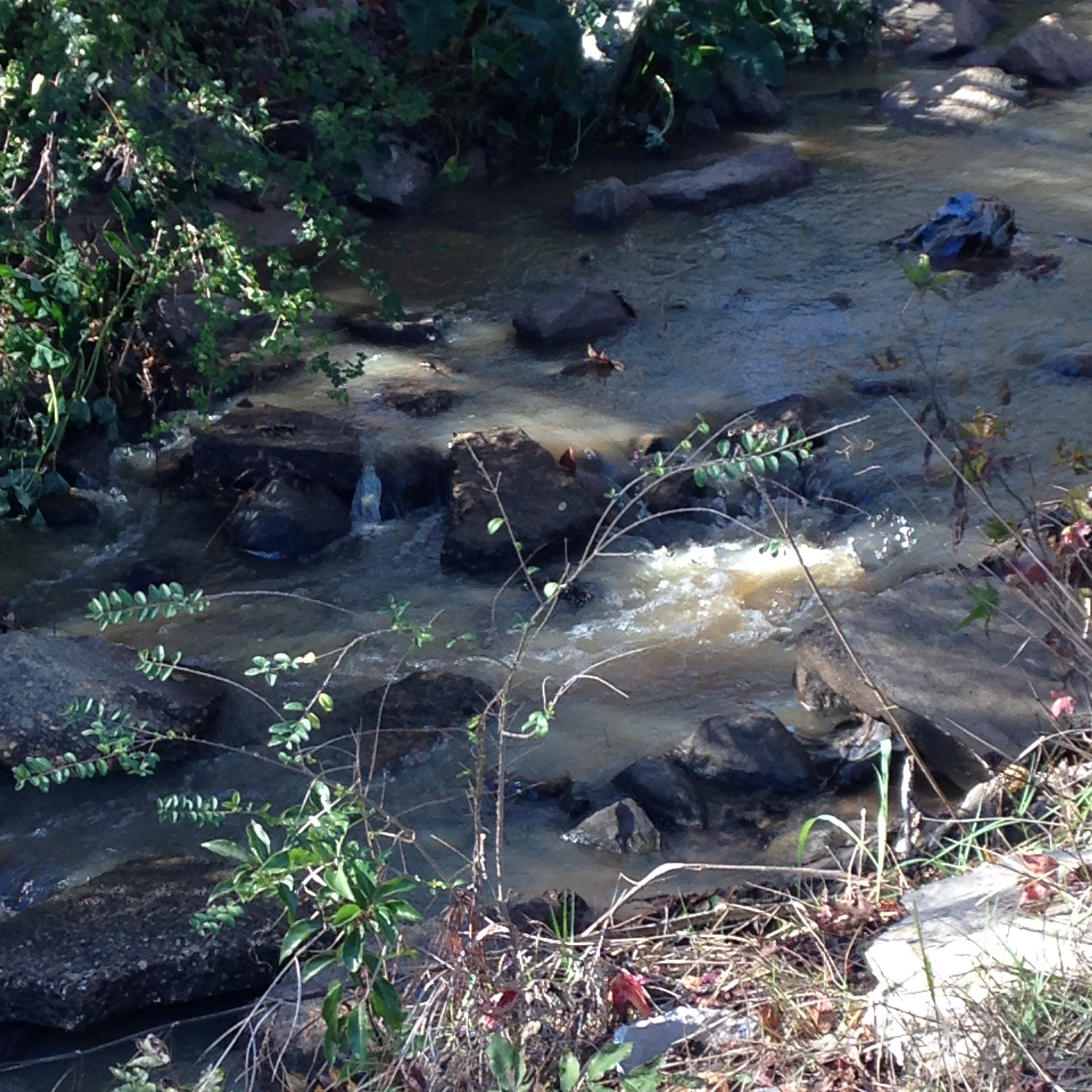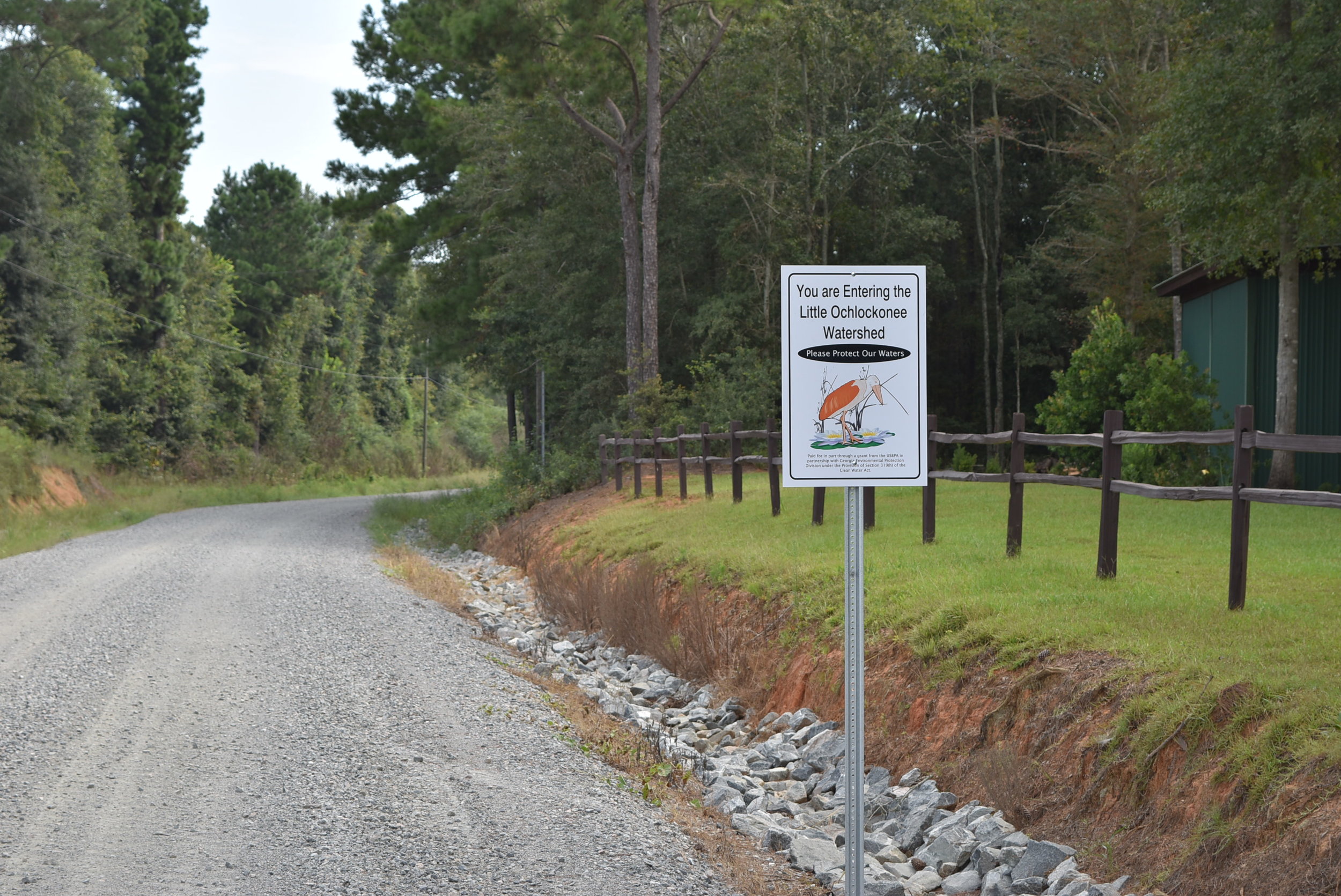
It’s All in the Dirt
Better Back Roads: A Collaborative Effort to Address Erosion and Sedimentation in Georgia
Golden Triangle began its dirt road restoration efforts in 2012 with a clear commitment to environmental stewardship and the protection of Georgia’s water resources. In partnership with the Georgia Environmental Protection Division (GAEPD) and the U.S. Fish and Wildlife Service, Golden Triangle initiated targeted restorations of unpaved roads within the Spring Creek Basin. These projects were designed not only to improve road stability, but also to reduce sedimentation that threatened sensitive aquatic ecosystems, including habitats that support endangered and threatened freshwater mussel species.
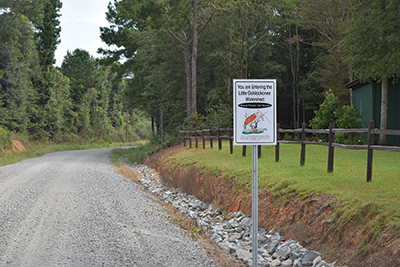

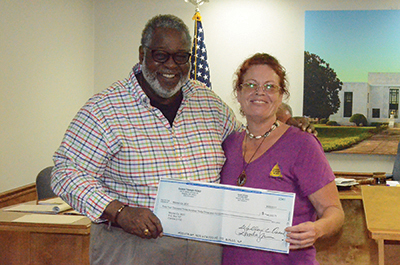
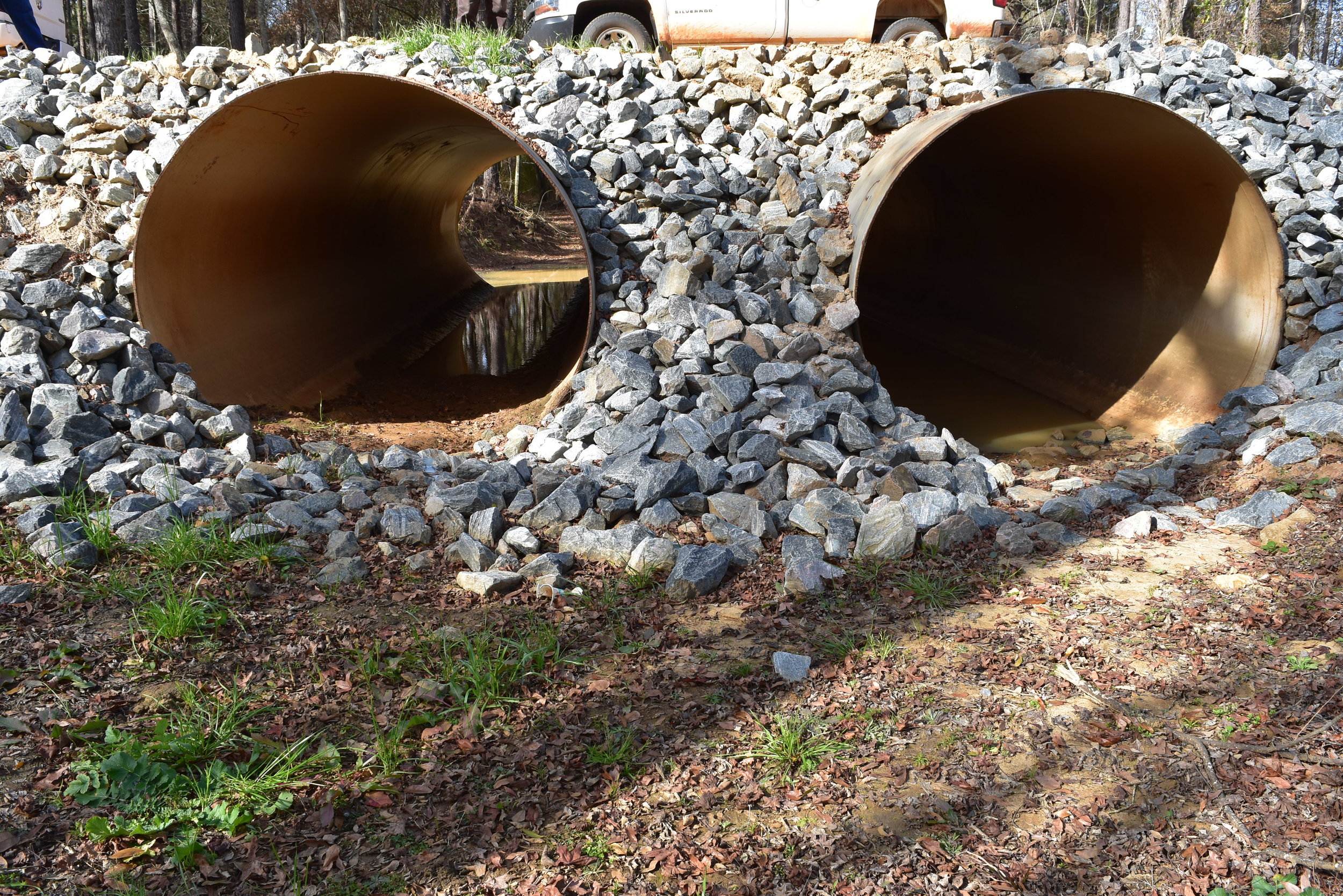
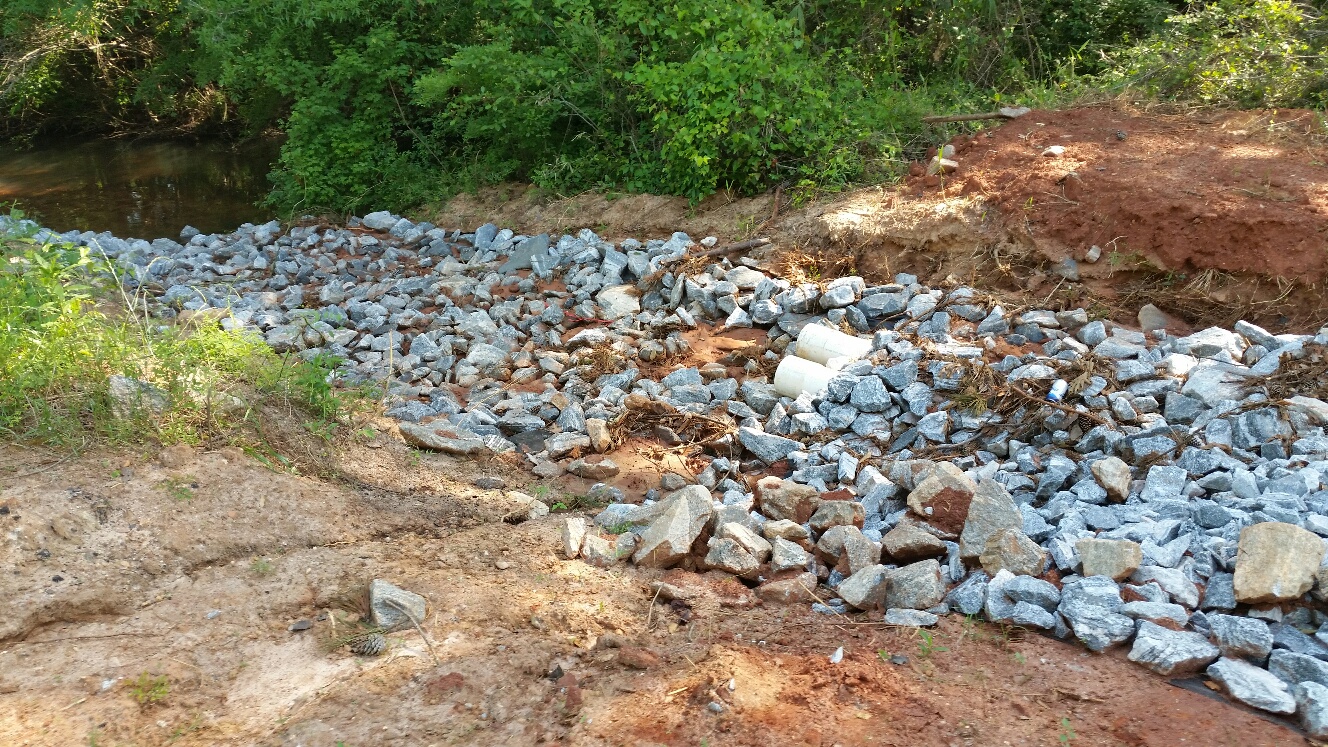
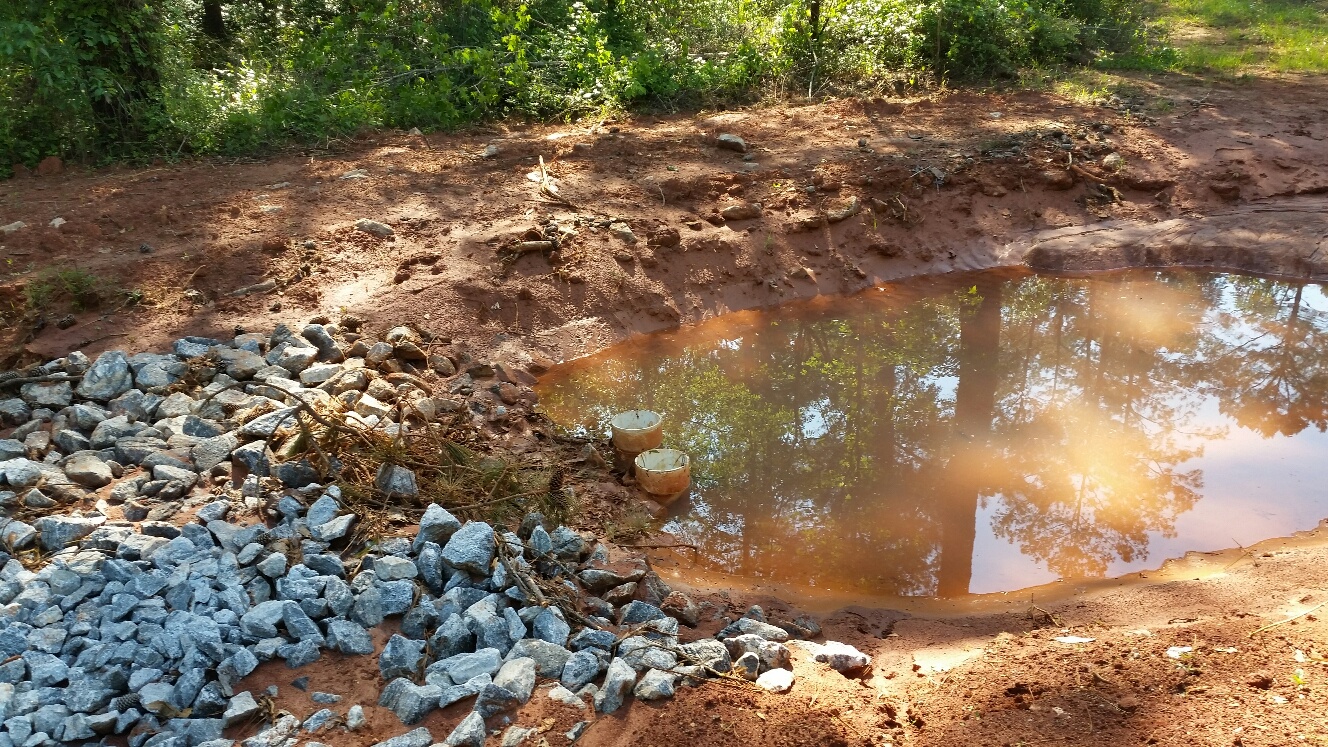
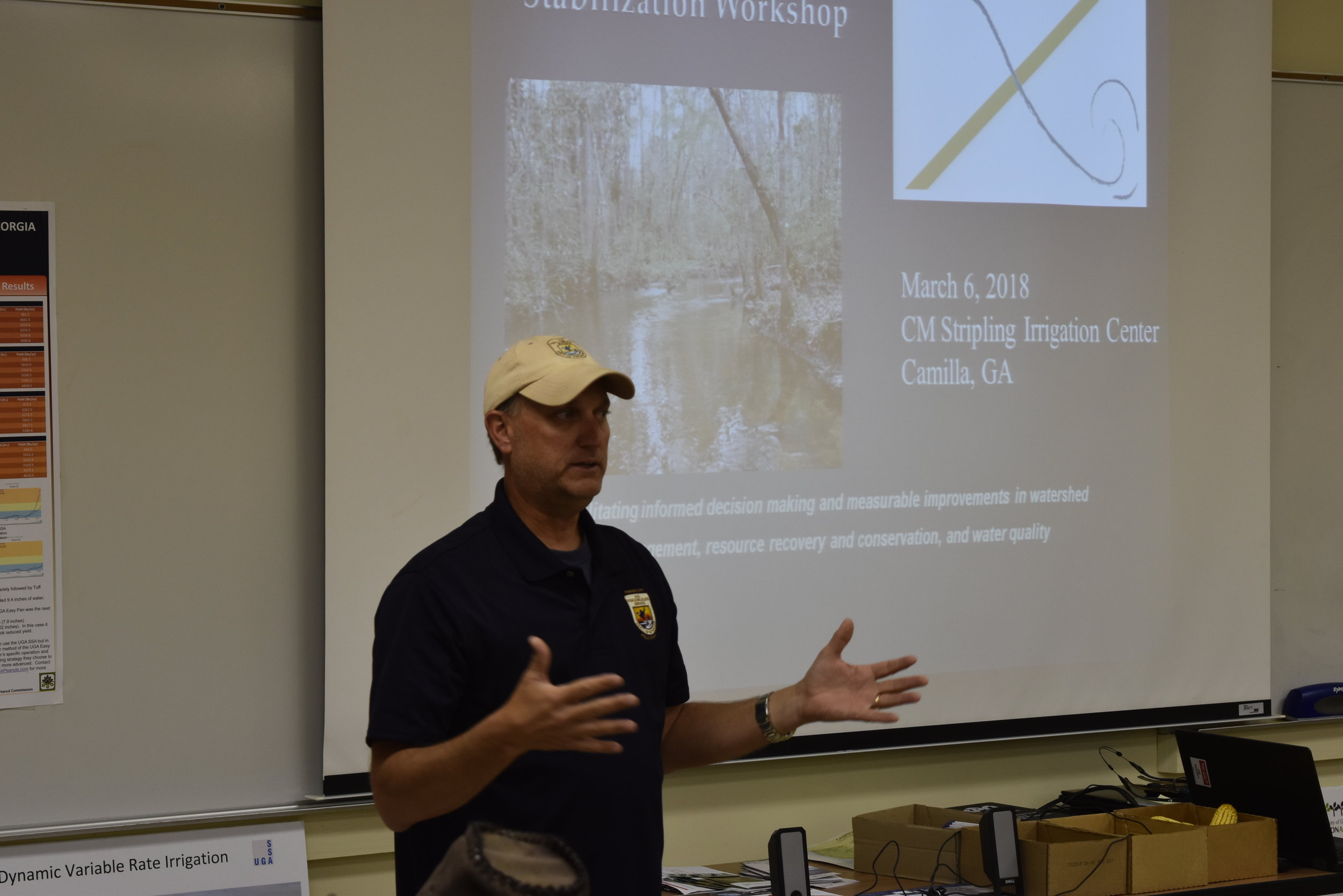
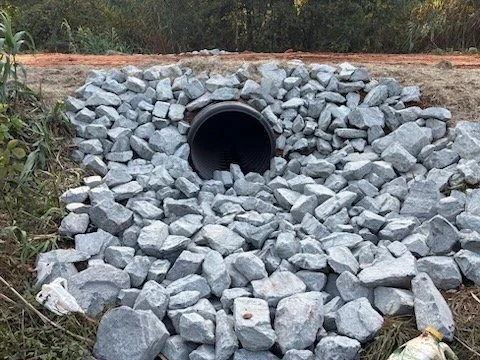
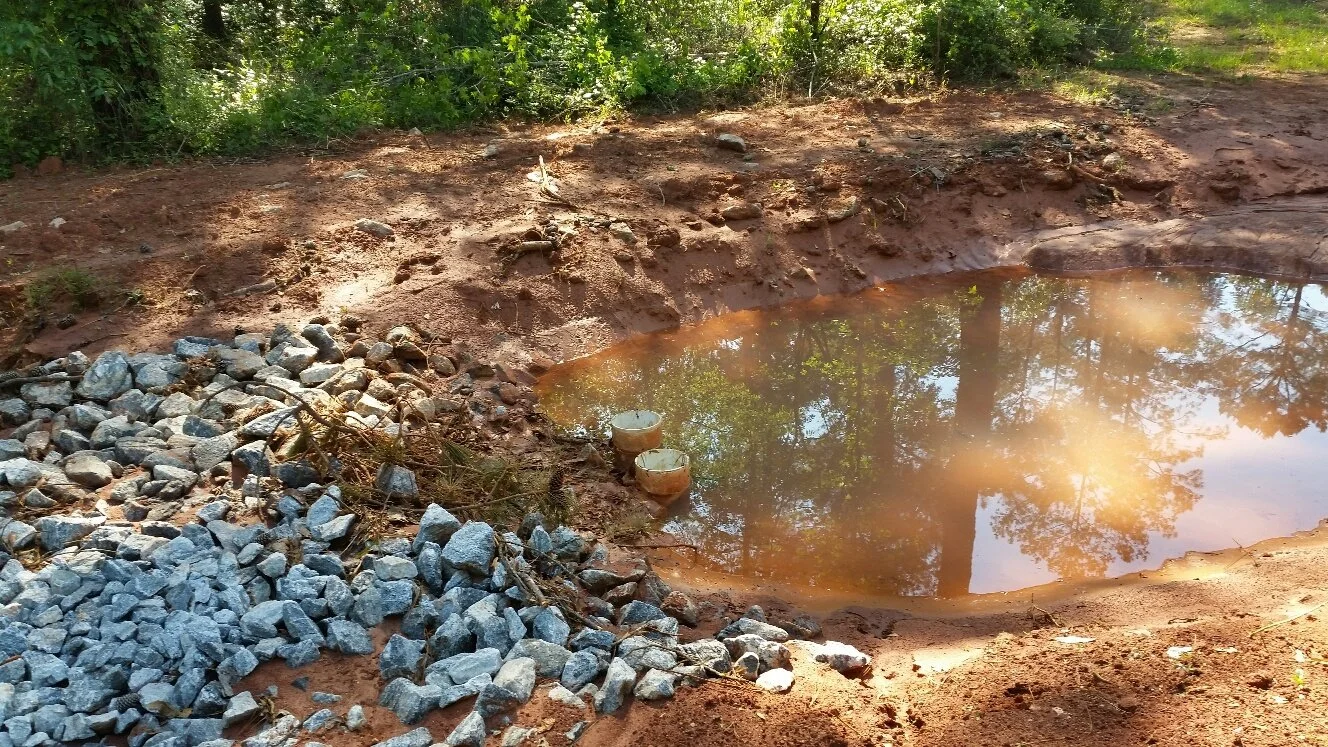
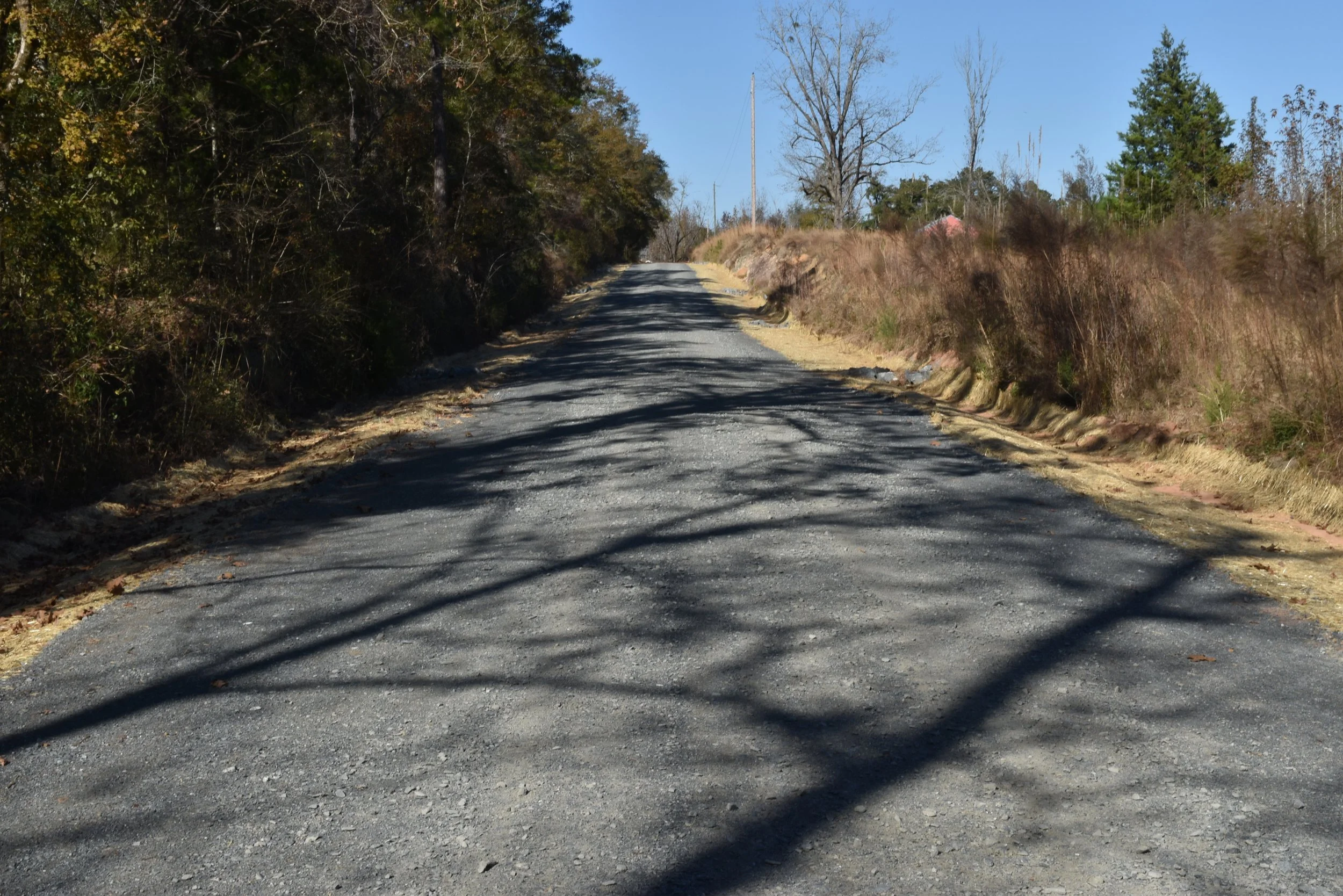
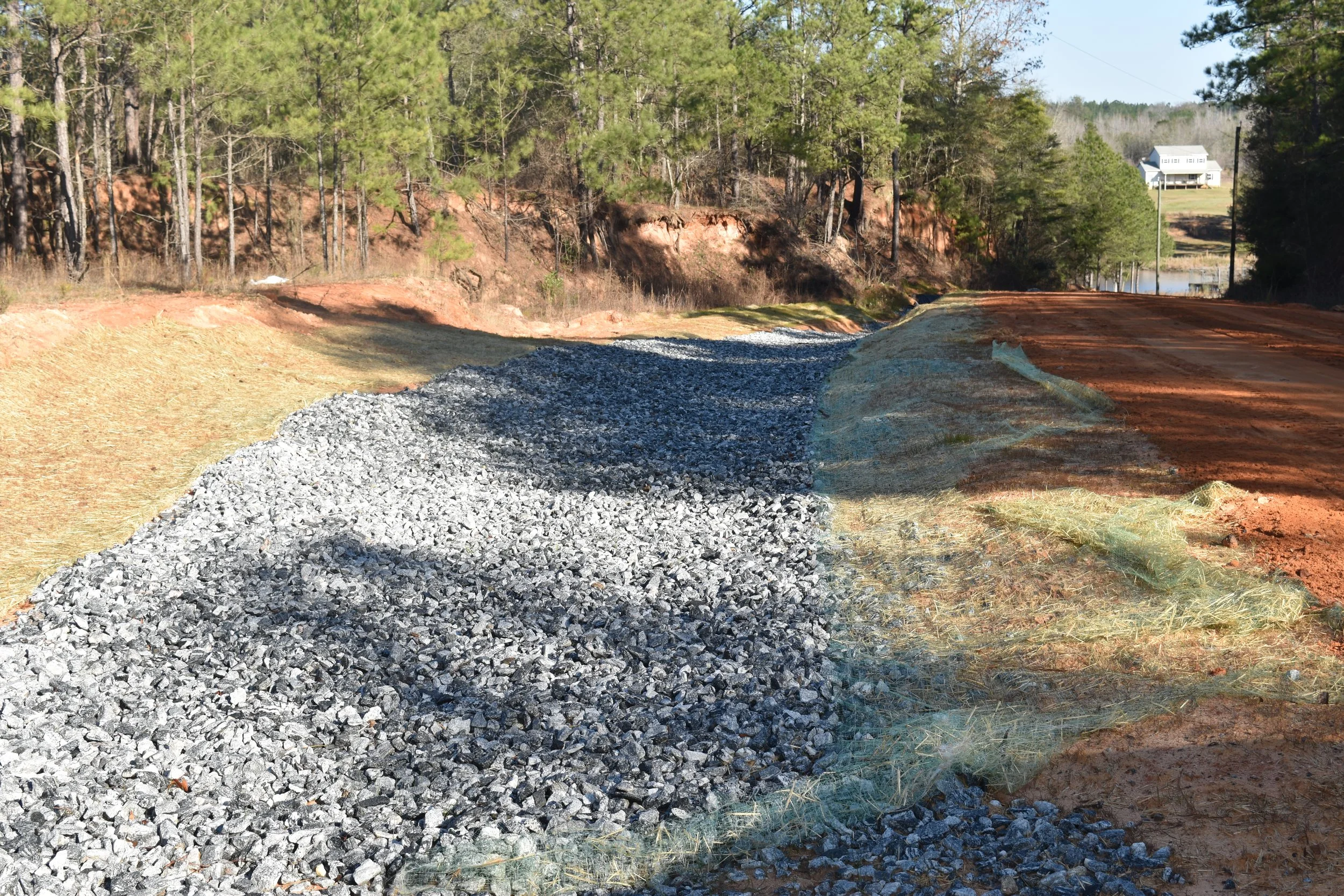
Understanding the Challenge
Erosion and sedimentation—often driven by land-disturbing activities such as agriculture, forestry, construction, and the use of unpaved roads—pose serious risks to Georgia’s land and water resources. Dirt roads are a significant source of sediment runoff, as rainfall frequently carries soil and silt directly into nearby streams and creeks. Over time, this runoff degrades water quality, disrupts natural stream flow, and harms aquatic habitats.
Because many dirt roads run parallel to or intersect waterways, they can act as direct conduits for sediment during storm events. The resulting sediment buildup reduces water clarity, clogs channels, lowers oxygen levels, and creates unsuitable conditions for both wildlife and downstream water uses. Addressing these impacts requires coordinated action at the local, state, and federal levels.
A Collaborative Approach: Better Back Roads
To address sedimentation from dirt roads, the Georgia Environmental Protection Division—through its Section 319(h) Grant Program—has partnered with Golden Triangle, the Albany Planning and Policy Center, the Lower Chattahoochee River Soil and Water Conservation District, and the U.S. Fish and Wildlife Service. Together, these partners promote and implement Better Back Roads practices that reduce sediment runoff and protect local watersheds.
Golden Triangle works closely with county road departments to train staff in specialized erosion control techniques and to ensure proper installation in high-priority areas, particularly at stream crossings. Better Back Roads practices include stabilizing eroded roadbeds with erosion control matting and aggregate rock, repairing or replacing culvert pipes, reshaping and stabilizing roadside ditches, and installing turnouts that redirect runoff away from streams and reduce roadway flooding. These improvements enhance water quality while extending the lifespan of rural road infrastructure.
Advancing Best Management Practices
In 2020, Golden Triangle received a GAEPD grant to update the Georgia Better Back Roads Field Manual, commonly known as the Red Book. Based on the Manual for Erosion and Sediment Control in Georgia (the Green Book), the updated manual incorporates new technologies, methods, and best management practices (BMPs). These updates ensure that erosion control strategies remain effective and responsive to the state’s evolving conservation and infrastructure needs.
Completed Road Restoration Projects
Golden Triangle has successfully completed road restoration projects across its service delivery area, including:
Early County: Sawhatchee, Still, Weaver, and Sheffield Mill Roads
Miller County: Hornsby Road and Old Mill Road
Mitchell County: Jack Peirson Road
Baker County: Colquitt Ford Road
Webster County: Fox Creek and Gill Pond Road Improvements
These completed projects have significantly reduced sediment runoff, improved water quality, and restored safer, more resilient rural roadways.
Most Recent Restoration Effort – Grady County (Cranford Road)
Golden Triangle’s most recent restoration project was completed in Grady County at Cranford Road, where targeted Better Back Roads techniques were applied to address chronic erosion and sediment runoff affecting Turkey Creek and Tired Creek. The project focused on improving roadway stability and drainage to reduce sediment transport into these adjacent waterways.
Restoration activities included reshaping and stabilizing the existing roadbed, reinforcing highly eroded areas with erosion control matting and aggregate stone, and repairing or replacing cross-drain culvert pipes to improve water flow. Strategic turnouts were installed to redirect stormwater away from stream crossings, and roadside ditches were regraded and stabilized to enhance drainage efficiency and reduce erosion during heavy rainfall events.
Protecting Georgia’s Waters for the Future
Through sustained collaboration and the application of proven restoration techniques, Golden Triangle’s Better Back Roads initiatives continue to protect Georgia’s waterways, support healthy aquatic ecosystems, and strengthen rural infrastructure. These efforts play a crucial role in preserving the state’s natural resources, benefiting local communities both now and in the future.
Funding Acknowledgment:
These projects have been funded in part by the United States Environmental Protection Agency.
